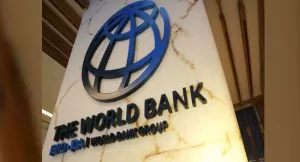Nigerian Bank Customers to Pay N6 per SMS Transaction Alert Starting May 1, 2025

As of May 1, 2025, Nigerian bank customers are now required to pay N6 for each SMS transaction alert, marking a 50% increase from the previous fee of N4. This development, which has sparked widespread discussion among consumers, is a direct result of a recent tariff hike approved by the Nigerian Communications Commission (NCC) and implemented by telecommunications operators. The new fee structure, adopted by major banks such as Guaranty Trust Bank (GTBank) and Ecobank, reflects the rising operational costs faced by both the banking and telecommunications sectors in Nigeria.
Background of the Fee Hike
On January 20, 2025, the NCC approved a 50% tariff increase for telecommunications services, allowing major operators such as MTN, Airtel, Globacom, and 9mobile to adjust their pricing. The decision was driven by the need to address escalating operational costs, including inflation, the devaluation of the naira, and surging energy prices. These economic pressures have significantly impacted the telecommunications industry, prompting operators to pass on the increased costs to consumers and businesses, including financial institutions reliant on SMS services for customer notifications.
Banks, which use SMS alerts to inform customers of transactions, account activities, and security updates, have been directly affected by the tariff hike. To offset the increased cost of sending these messages, financial institutions have revised their SMS alert fees, resulting in the new N6 charge per transaction alert. This adjustment was communicated to customers through emails and SMS notifications in the weeks leading up to May 1, with banks emphasizing the importance of SMS alerts in ensuring account security and transparency.
Bank Communications and Customer Options
Major banks have actively informed their customers about the fee change. For instance, GTBank notified its customers via email, stating, “Dear Customer, due to a recent hike in telecommunications rates, the fee for SMS transaction alerts will increase from N4 to N6 per SMS, effective May 1, 2025. SMS alerts help you monitor your account and prevent fraud. To opt out of SMS alerts and switch to email or app notifications, kindly update your preferences on our website.” Similarly, Ecobank and other banks have issued comparable notices, urging customers to consider alternative notification methods to avoid the fee.
Customers who wish to avoid the N6 SMS fee have the option to transition to free notification channels, such as email alerts or push notifications through their bank’s mobile app. These alternatives can be activated via online banking platforms or by visiting a bank branch. However, customers are cautioned that opting out of SMS alerts may reduce their ability to receive real-time updates on account activities, potentially increasing the risk of missing critical fraud alerts. Additionally, banks have noted that SMS alerts sent to international phone numbers may incur higher charges, depending on the telecommunications provider and roaming rates.
Consumer Reactions and Economic Context
The introduction of the N6 SMS fee has raised concerns among Nigerian bank customers, many of whom are already grappling with economic challenges. Nigeria’s inflation rate, which stood at 33.88% in October 2024, has driven up the cost of living, while the naira’s depreciation has further strained household budgets. For many, the additional N6 per SMS alert, though seemingly small, could accumulate significantly for customers with frequent transactions, such as small business owners or individuals with multiple accounts.
Social media platforms, including X, have been abuzz with reactions to the fee hike. Some customers have expressed frustration, arguing that banks should absorb the cost or offer more affordable alternatives. Others have called for greater transparency in how these fees are determined, questioning whether the full increase is justified by the telecommunications tariff hike. Meanwhile, consumer advocacy groups have urged the NCC and banks to consider the broader economic impact on Nigerians and explore ways to mitigate the burden on low-income customers.
Implications for the Banking Sector
The SMS fee increase highlights the interconnected nature of Nigeria’s telecommunications and banking sectors, both of which are navigating a challenging economic landscape. For banks, SMS alerts remain a critical tool for customer engagement, enabling real-time communication about deposits, withdrawals, loan updates, and potential security threats. However, the rising cost of these services may push more customers toward digital alternatives, accelerating the adoption of mobile banking apps and email notifications.
Banks are also under pressure to balance profitability with customer satisfaction. While the N6 fee aligns with the increased costs imposed by telecom operators, it risks alienating customers who perceive it as an additional financial burden. To address this, some banks are investing in improving their digital platforms, offering seamless app-based notifications and enhanced cybersecurity features to encourage customers to transition away from SMS alerts.
Looking Ahead
The N6 per SMS transaction alert fee, effective from May 1, 2025, underscores the broader economic challenges facing Nigeria, where rising costs are impacting both businesses and consumers. While banks and telecom operators argue that the fee adjustments are necessary to sustain operations, customers are left to navigate the financial implications. As the banking sector continues to evolve, the shift toward digital notification channels may offer a long-term solution, but for now, the N6 fee is a reality for millions of Nigerian bank customers.
For those seeking to manage costs, exploring email or app-based notifications is a practical step. Customers can contact their banks or visit their websites for guidance on updating notification preferences. As Nigeria’s economic landscape evolves, stakeholders—including the NCC, banks, and telecom operators—will need to work collaboratively to balance operational sustainability with consumer affordability.






